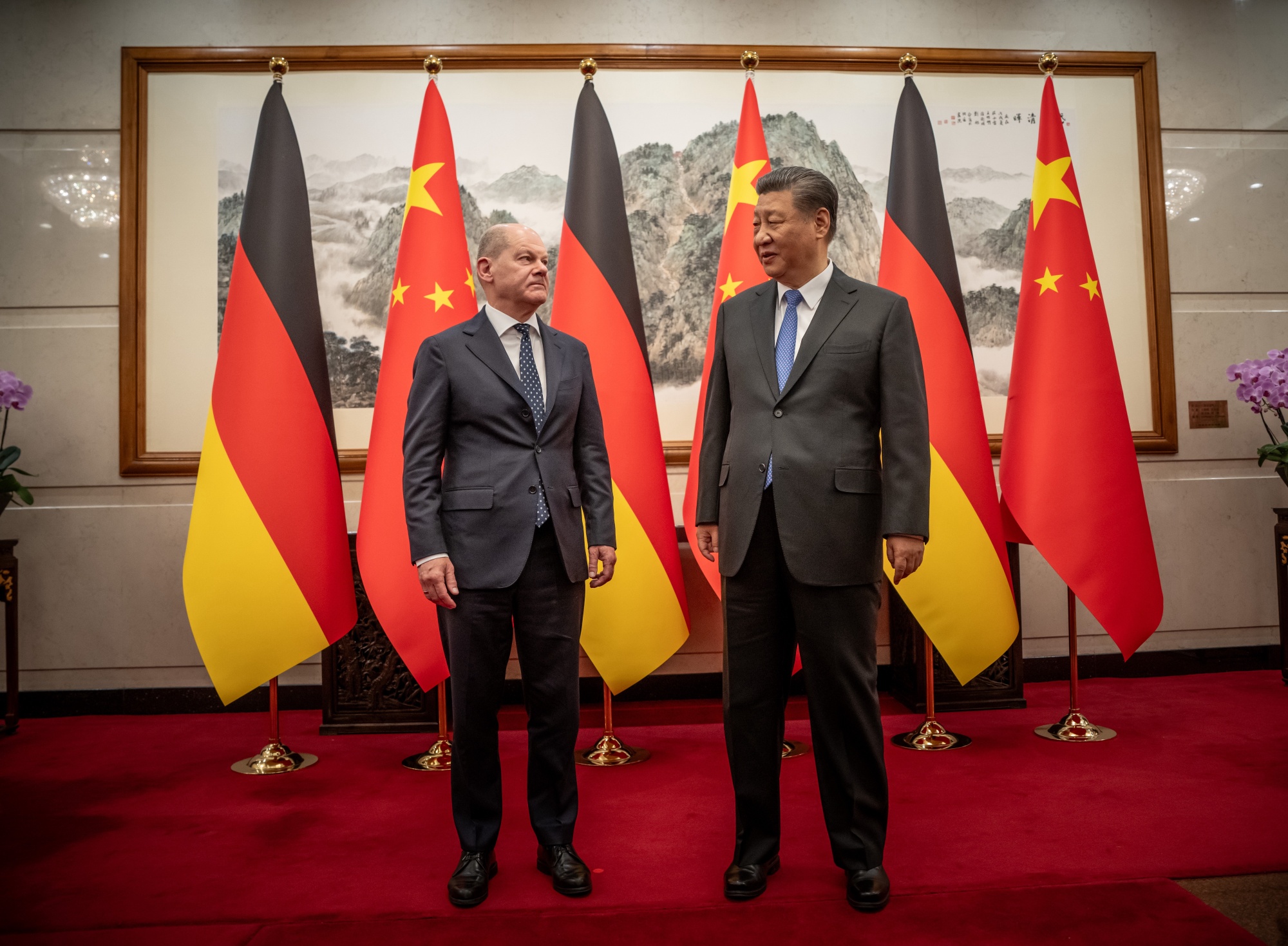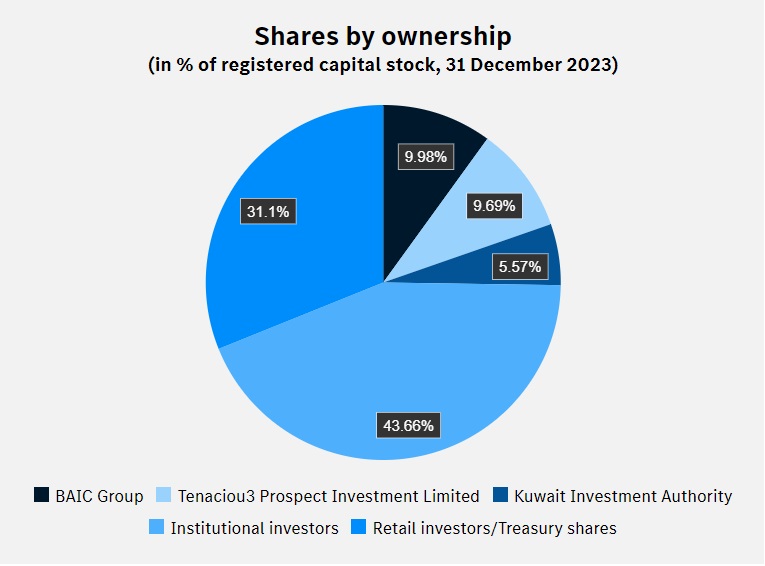International
Scholz in China deals with business and dumps US and EU

German Chancellor Olaf Scholz’s three-day visit to China, hailed by Beijing as a success, may have exposed the European Union’s divisions over how to engage with China and will almost certainly spark discussions when he returns.
At a press conference in the Chinese capital Tuesday night, Scholz said his meetings with Chinese President Xi Jinping and Premier Li Qiang were “calm, careful and honest.”
Scholz called for “pragmatic” economic relations with China and said he raised Western concerns that China is increasing its supply of dual-use military goods to Russian forces after Moscow invades Ukraine in 2022. He will certainly be supported on this by Brussels and Washington, but his words are unlikely to have any effect on Sino-Russian interchange.
“For me, it is important to make it clear that there is an urgent need not to supply weapons to Russia. But of course, the issue of dual use is also part of this problem. It was possible to raise all the necessary issues in a way that cannot be misunderstood,” said the Chancellor, who declined to comment on whether he had obtained new commitments from Xi to emphasize that he asked but the other did not respond.
A day earlier, he had politely urged Beijing to address economic problems, including intellectual property theft and overcapacity. “Competition must be fair,” Scholz said in a speech to students in Shanghai on Monday, in a rhetoric far removed from the hard-line approach favored in Brussels these days. “We want a level playing field; of course, we want our companies to be unrestricted.”
But treated these two issues common to Western allies, however, it then seems that the paths have been
Scholz and Germany go their own way, not caring about Brussels and Washington
The Social Democrat declined to say whether he agreed with EU and U.S. claims that China was “dumping cheap green technology products on the global market.” “It’s obvious that we need to discuss the issue of overcapacity and that we need to discuss subsidy races, which is an essential topic because the issue of subsidies is all over the world,” Scholz said.
“It is important to be very pragmatic when we discuss these issues. My hope is that this will quickly translate into concrete facts.” Germany is well aware that without low-cost Chinese products, from solar panels to heat pumps, it would be impossible to achieve the environmental goals that Germanic elites have set for themselves.
That’s not all: while the European Commission launched an investigation into subsidies in China’s electric vehicle sector, Scholz’s delegation signed “a joint declaration of intent on dialogue and cooperation in the field of automated and connected driving” with Chinese counterparts.
This will pave the way for the invasion of the European market with cheap Chinese self-driving cabs that will not only displace Western cars but destroy whole categories of European jobs. However, because they will perhaps contain some German components or be operated by German multinationals, they will be fine.
The tone and activity will have pleased the delegation of high-level German industrialists-many of whom represent automotive companies-who traveled with Scholz.

14.04.2024, China: Scholz visits Bosch factory in China
opening, On the eve of the trip, Volkswagen announced a new $2.67 billion investment in its Hefei manufacturing and innovation center in China’s Anhui province, and during the visit, executives discouraged a confrontational approach with China.
“What we cannot use as an exporting nation are the growing trade barriers,” Mercedes chief Ola Källenius told German public broadcaster ARD. BMW CEO Oliver Zipse said he sees “more opportunities than risks,” adding that there should be no barriers against Chinese electric cars.
“We don’t feel threatened. Again, we should not exaggerate our fear of foreign manufacturers. We are confident that we are competitive,” Zipse said.
Andreas Rade, director general of the German Automotive Industry Association (VDA), issued a statement before Scholz’s trip, criticizing Brussels’ decision to investigate Chinese EVs for not coordinating sufficiently with EU capitals.
In public comments before and after the meeting with Xi, the chancellor refused to support Brussels’ de-risking agenda and focused mainly on German trade interests. Previously, he had expressed skepticism about the EV probe.
His rhetoric has been considerably softer than that of Brussels. In a speech last week, EU competition chief Margrethe Vestager said the bloc must consider the “reliability” of clean technology imports from China.
Cora Jungbluth, an expert on China at the Bertelsmann think tank near Bielefeld, criticized Scholz for not inviting the Federation of German Industries (BDI), a pressure group that helped shape the EU’s triptych approach, which sees China simultaneously as partner, competitor and rival. This invitation was clearly omitted so as not to irritate its Chinese counterpart.
Beijing has increasing power over Germany precisely because of its ties to German companies, if not because of Chinese control over many relevant companies. Suffice it to note that Mercedes is almost 20 percent owned by Chinese companies, BAIC and the Tenacious Fund.
Mercedes ownership

Under these conditions, Scholz turns into Merkel. i.e., she who is always ready for trade pacts, at any cost and without considering the internal and external consequences.






